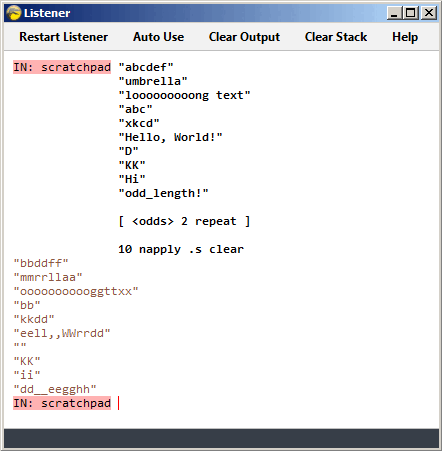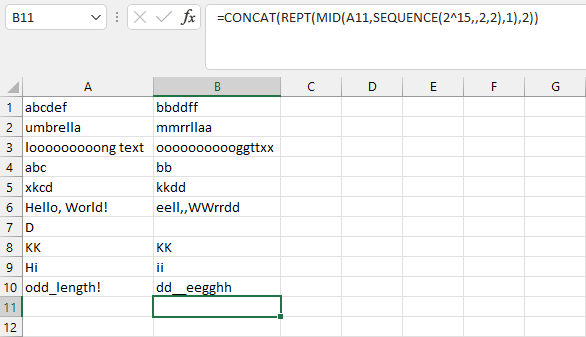Your task is simple, just remove the odd indices and double the even indices
Example
the input is Hello, World! and we get indices
H e l l o , _ W o r l d !
1 2 3 4 5 6 7 8 9 10 11 12 13
and remove the odd indices
el,Wrd
Double!
eell,,WWrrdd
and you are done
1-Indexing
Test cases
abcdef => bbddff
umbrella => mmrrllaa
looooooooong text => ooooooooooggttxx
abc => bb
xkcd => kkdd
Hello, World! => eell,,WWrrdd
D => <empty>
KK => KK
Hi => ii
odd_length! => dd__eegghh
<empty> => <empty>
The input can be list if you want.



